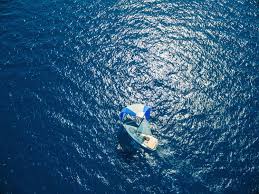Uncharted waters
- Carol Anne Jones

- Dec 13, 2020
- 4 min read
Updated: Dec 31, 2020
As most of the world follows the Gregorian calendar, I can safely say that for the majority of us we’re hurtling towards a new year namely 2021. 2020 was dominated by the pandemic and life in lock down although having its uses basically sucked.
Today is a big day as I write this monthly musing, for my home country. Although I’m thousands of kilometers or miles away I can feel the tension in Europe. Brexit is finally happening and 2016’s referendum result will be done. Yet on this day a trade deal looks elusive.
Having been around for a few decades my country has always struggled with the challenge facing the modern nation state. That is, how to balance control and influence. There is no easy way back or guarantees about what will come next and the country has little idea where it is leaping. These are unchartered waters.
Some say it’s an act of epic stupidity. The decision to leave a superpower bloc... insane. And for what? Was it a moment of nostalgic madness which will lead to economic isolation? Has the country lost control of who it is and where it's going? A banana republic!
But, isn't this only the end of one era and the beginning of the next? Isn’t it sane and normal for most countries to want their own independent national sovereignty? Isn't this a question facing all nation states today? Viewed within a global context shouldn't the questions be; how can national identity be maintained and remain prosperous and sovereign in a globalized economy? How can the corrective power of national democracy within supranational institutions be addressed? How can ordinary citizens retain control over their lives and livelihoods in a world where areas of life seem beyond national political control?
This is the story of a country, my country that voted to take back control, but has little idea whether that is even possible anymore. It is also a story that does not begin or end today but one that has been debated since the aftermath of the second world war and will likely last for a long time into the future.
The EU has always been an issue for Britain. Attlee’s objections and Thatcher’s response remain as relevant today as they were in 1962 and 1975, except today, the Conservative right is leading Britain’s euro skeptic withdrawal from the bloc, not Labour’s Attleeite left. The philosophical question has always been the same: who will hold control?
Thatcher favored cooperation with Europe, influence within Europe but not at the expense of control over the basics of statehood like borders, money, and laws. When the Maastricht treaty became ratified, the familiar quandary remained, the dilemma between sovereign control and supranational influence. In joining the EU, Britain had chosen influence yet it had been unable to stop the federal project. Faced with this reality, it reverted to control by sitting it out but it did not share the same challenges and interests that came from a shared currency and open borders. It had ceded some of that influence by drifting into a half in, half out kind of status.
Tony Blair thought Britain needed to get back its influence. It needed to join the euro.
Britain should try to muscle its way into leading with France and Germany by being at the centre of things. The idea of joining the euro was eventually dropped. But the philosophical question had not been answered! If Britain was giving up influence in Europe, what was the point of membership at all?
Cameron, muddled along in the middle partly in and partly out but events were hurtling Britain towards a crunch. Events beyond the EU’s control; the global financial crisis of 2008 and the Syrian civil war exacerbated by the EU’s failure to address the problems. There was no monetary union without a fiscal union and all internal controls were dispensed with without establishing an adequately enforced common outer border first.
In 2011 the future of the single currency appeared to be hanging in the balance. A number of EU countries with huge levels of indebtedness were struggling to finance their deficits. Fears of sovereign defaults across the bloc meant EU leaders had to draw up an emergency treaty to safeguard the currency.
Cameron was unhappy, fearing further consolidation of the eurozone bloc without any protections for British interests. Cameron demanded legally binding protections for Britain’s financial sector. EU leaders, furious at his behavior, refused, and Cameron played his only remaining card, vetoing the proposed treaty altogether. European leaders simply organized a separate treaty without Britain. It was clear. The country had no real influence.
This became the hair trigger for Cameron’s referendum and the subsequent environment, which he chose to fight, but lost.
All in all, decisions have been made along the way that contributed to British unease. Yet all of these crises and policy decisions did not happen in a vacuum. Each British prime minister faced the same dilemma of balancing control and influence with not enough of either to feel comfortable.
So now Britian will take back control, the decision to leave simply being the most radical of the options to regain that, available at the time. Now ultimately the fundamental tools required to build a prosperous economy remain largely in the country's own control.
What will happen? That’s unknown, we will find out over time. As we enter the age of the much talked about Aquarius, quirky things are bound to happen. Perhaps a growing cultural revolution and not just in Britain.
For me life goes on, I’m going on a road trip later this month and will tell you all about it in January. Happy New Year art lovers!










Comments